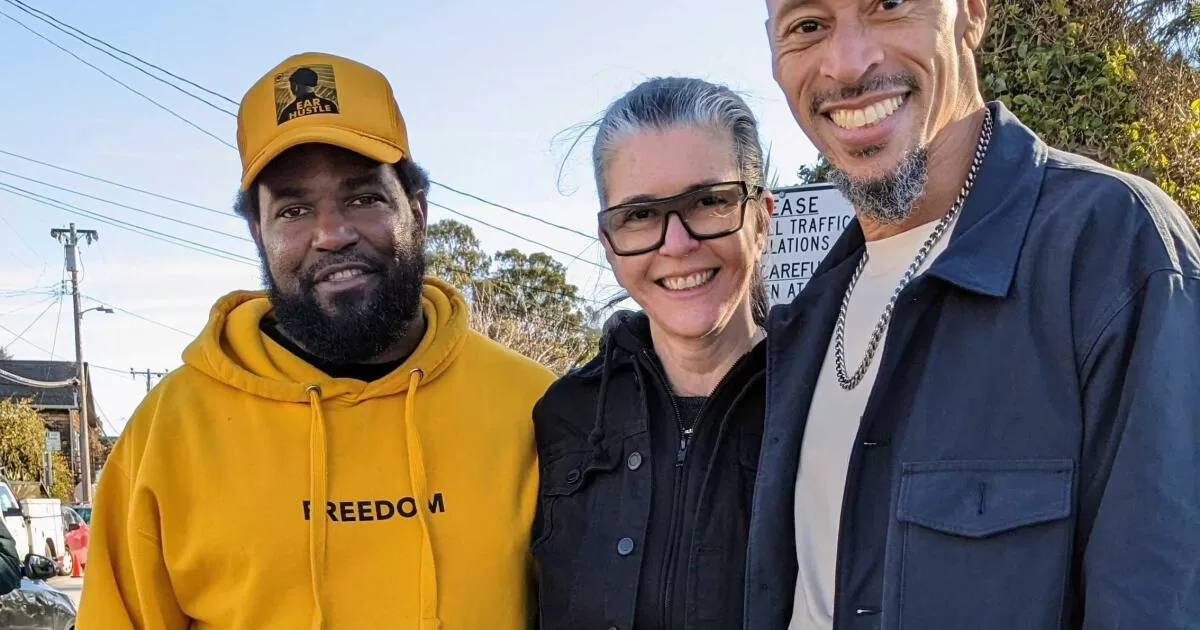The application is the first step in a lengthier process toward a pardon that requires final approval from the state Supreme Court, which is needed in cases involving those with more than one felony conviction.
Woods was sentenced to 31 years to life for his role in a 1997 armed robbery under the state’s tough-on-crime “three strikes” law, following two prior convictions when he was a teenager. Woods launched the “Ear Hustle” podcast from San Quentin State Prison in 2017. Morgan Freeman’s Revelations Entertainment is reportedly partnering with “Ear Hustle” for an upcoming docuseries, according to Deadline.
State law does not allow Newsom to pardon or commute the sentences of someone with more than one felony conviction without the high court’s approval. Instead, Newsom submitted Woods’ application to the Board of Parole Hearings, which would first have to recommend the pardon to the court.
Former Gov. Jerry Brown commuted Woods’ sentence in 2018, making him eligible for parole. Brown noted that correctional staff and volunteers had praised Woods’ behavior and leadership among the other inmates. After his release, Woods interviewed Brown for the podcast at the governor’s mansion in Sacramento.
“I believe Earlonne will continue to educate, enlighten and enrich the lives of his peers at San Quentin and the many, many people who listen faithfully to ‘Ear Hustle,’” Brown wrote in 2018.
Newsom also commuted the sentence of Rahsaan “New York” Thomas, a former San Quentin inmate and “Ear Hustle” co-host, in January 2022. The parole board granted his parole in August and Thomas was released the following February.
His departure from San Quentin followed an investigation by The Times into dozens of people who remained in prison despite receiving mercy from the governor.
Newsom also granted a posthumous pardon to William Burwell, who helped organize protests as a student at San Fernando Valley State College, now Cal State Northridge, during the Civil Rights Movement. Burwell was arrested in 1969 and convicted of misdemeanor trespass and failure to disperse during a racial justice protest on campus in 1969, according to the governor’s office.
The students eventually negotiated for the creation of what would later become the Department of Africana Studies, which Burwell co-founded and later chaired. Burwell died in August 2022.
“Dr. Burwell’s decades of work and contributions advancing equity and justice benefited innumerable students, faculty, the CSUN community, and many others in California and beyond,” Newsom wrote in his pardon. “His visionary leadership will continue to serve as a legacy for future generations.”
Anyone convicted of a crime in California can apply for a pardon or commutation from the governor.
A pardon restores some rights to former felons, such as the ability to serve on a jury or to seek a professional license. In limited cases, pardons can restore gun rights to those convicted of crimes that did not involve a dangerous weapon or relieve a sex offender from being required to register.
Commutations reduce sentences and make felons eligible for parole. Similar to Brown, Newsom’s commutations go before the parole board before an inmate is released. Newsom has granted a total of 181 pardons, 141 commutations and 40 reprieves while in office.
The governor’s office considers the effect of a commutation or pardon on the community, the age and circumstances of the crime and sentence, self-development and rehabilitation, and the need for clemency, among other factors.
